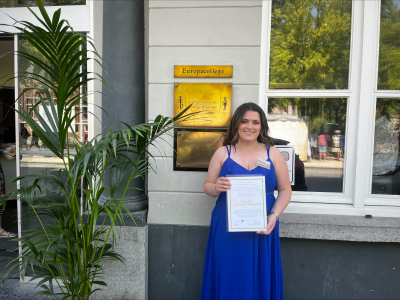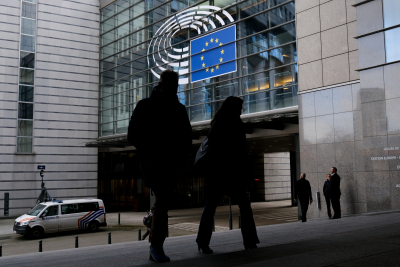2016 has been dotted with major leaks into how the rich, powerful and corrupt utilise the global financial system to hide their wealth, be it from the tax man or the law. But after the Panama Papers, the Bahamas leaks and the Football leaks, how many revelations do we need to see before governments finally come up with a strong and ambitious agenda to tackle the secrecy which fuels corruption and money laundering?
The European Commission’s proposal at the beginning of the summer was an encouraging step towards greater transparency on who the ultimate, or beneficial, owners of companies are who hide behind complex multi-layered schemes of shell companies and trusts. The Commission’s revisions to the anti-money laundering directive in response to the Panama Papers proposed public access to beneficial ownership information as a principle and introduced public national registers of beneficial ownership for companies and some trusts.
In an informal agreement reached today that shall serve as a basis for the inter-institutional negotiations in early January, the Council has pushed back against transparency and reintroduced the concept of ‘legitimate interest’ for those who wish to access the beneficial ownership data of both companies and trusts. This means that only people that can demonstrate a legitimate interest would be granted access. But the definition of legitimate interest will be at the discretion of Member States making is impossible to ensure consistent and harmonised practices across the EU.
This can only be seen as a way to limit if not prevent access since we know for a fact how cumbersome, costly and impractical this would make the process of accessing the data. As one of the first member states to come up with a detailed proposal to transpose the 4th anti-money laundering directive into its national legislation, the Dutch have had to grapple with this problem. They finally decided to go public after assessing that defining a ‘legitimate interest’ would be ‘hard to verify and enforce and burdensome for both the administrator of the register as its users’. In other countries such as Czech Republic and Italy, the interpretation of legitimate interest as part of the transposition process of the current Directive is being done in such a restrictive way that people would have to go through court procedure to demonstrate legitimate interest or that access to beneficial ownership data could only be granted to involved parties in ongoing legal proceedings.
So it seems we are back to the same old situation as before the Panama Papers, if not worse off. The Council’s negotiating position now states that the beneficial ownership registers would be accessible 36 months after the revised Directive is adopted, i.e. in spring 2020 at the earliest. This implicitly suggests a postponement of the implementation of the 4th anti-money laundering directive initially set in mid-2017.
Also disappointing is the position of the Council on trusts. Under the guise of avoiding duplication of registration, the proposal would allow to exempt trusts from registration in a Member State where the trustee is established if “there is sufficient proof that the beneficial ownership information of the trust or similar legal arrangement has been registered in a central beneficial ownership register of another Member State” (Art 31.3a). This would most certainly open up a new avenue for creative criminals to develop strategies of avoidance.
That this happens while in parallel a number of major European Members States are making public national commitment to public registers is rather surprising. The German government recently announced its willingness to introduce public beneficial ownership register for companies and trusts. France and the Netherlands also committed to public registers during the London High-Level Anti-Corruption Summit in May 2016.
That the Council still questions the benefits of publicly disclosing beneficial ownership nine months after the fallout from the Panama Papers scandal which triggered at least 150 inquiries, audits or investigations in 79 countries around the world and the investigation of more than 6,500 taxpayers and companies, leading so far to the recouping of at least $110 million in unpaid taxes or asset seizures, seems even more ludicrous and preposterous.
Efforts by the Commission and Parliament to improve EU rules of beneficial ownership transparency and address the problems exposed by the Panama Papers shall not be undermined by antagonist national political agendas that consolidate into a low and unambitious common denominator. As the negotiations are about to start in early 2017, we call upon the Commission and Parliament to act as gatekeepers of European citizens’ interests and urge Member States not to offer such great Christmas gift to money launderers and fraudsters.




